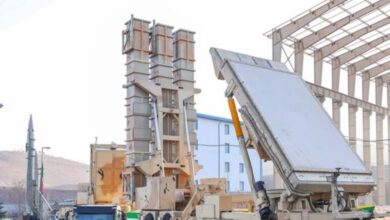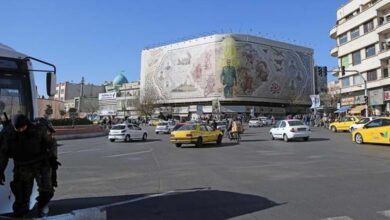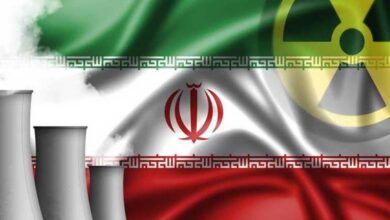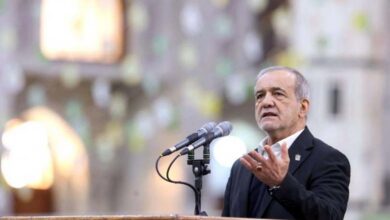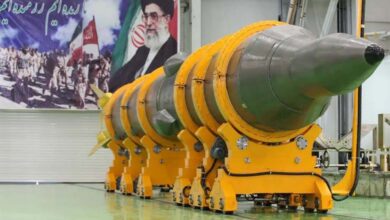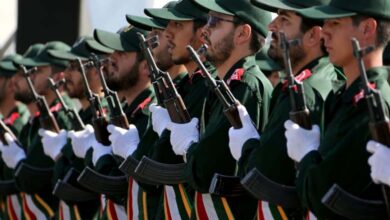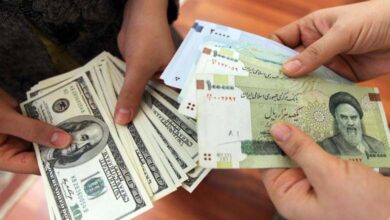4 months after Mahsa’s death… Iran blames the nurses for the reason
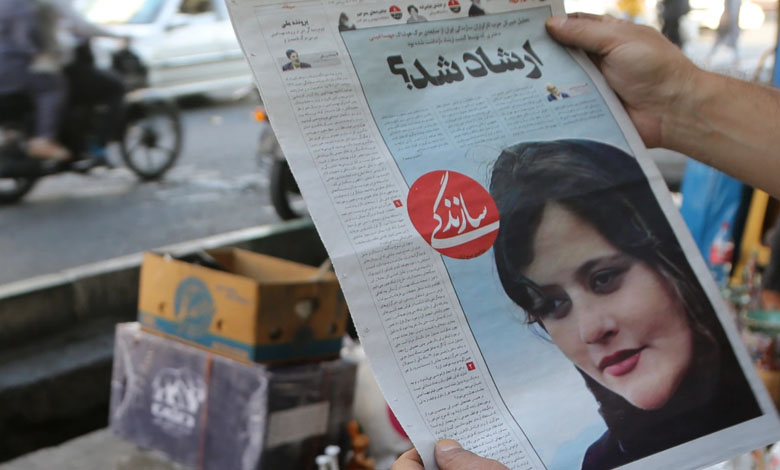
Four months after the death of Mahsa Amini after her arrest by morality police, the Iranian authorities are still searching for a “hanger” for the reasons.
This time, Iranian authorities found what they saw as “nurses and paramedics”, accusing them of “failing to revive the heart of Mahsa Amini”.
Mohamed Saleh Nikbakht, the lawyer for Mahsa Amini’s family, said on Thursday evening that “no action was taken” in this case, and the investigation “saw that nurses and paramedics in the resuscitation had shortcomings and failed in massaging this young woman (Mahsa Amini) heart.”
“The medical report of Kosra Hospital in Tehran, where Mahsa Amini died, has not yet been handed over to Mahsa’s family and no action has yet been taken in the Mahsa case,” lawyer Nikbakht told Faraz.com.
“The specialist who operated on Mahsa 15 years ago denied the possibility of dying of an underlying disease by saying that Mahsa had continued her normal activities for the past 15 years without any problems.”
“The coroner wants to announce Mahsa’s death as a result of a malfunction of the pills she takes to treat thyroid gland or because of the poor quality of the pills she takes,” the lawyer said earlier.
Last Tuesday, Iranian Foreign Minister Hossein Amir-Abdollahian claimed, during a press conference in the Turkish capital of Ankara, that “the death of Amini is natural,” describing it as “regrettable,” adding, “But the truth is that the virtual and media space of the West has organized a planned attack with specific political and security goals against Iran,” he said.
Mahsa Amini, a resident of Saqqez in Iran’s Kurdish region, traveled to Tehran with her brother in mid-September and was arrested by the country’s morality police on the pretext of not wearing a hijab.
In the photographs published since her arrest, her veil was not significantly different from the mandatory hijab that Iran introduced in 1979, however she was arrested by agents.
Amini went into a coma after being arrested by members of a police patrol and died three days later in a Tehran hospital.
After the announcement of the death, Iran witnessed a wave of popular protests against the regime and raised the slogan of toppling the clerical regime. Demonstrators raised the slogan “Women, Life, Freedom” while many demonstrators took off the hijab in protest of Amini’s death.
Iran’s security and military forces have launched a fierce crackdown on protesters, killing 516 demonstrators, including women and children, and capturing nearly 20,000.
The Iranian judiciary has so far executed four demonstrators, while the trials and death sentences of those arrested continue.
In late December, Iran’s Human Rights Organization said that Iranian courts had handed down death sentences against 102 detained protesters, warning that they would be executed.
Iran has been subjected to a wave of sanctions by Western countries, including many officials in the government, security and judicial apparatus, for violating human rights and cracking down on protesters.
Authorities have also cut off the Internet, imposed severe restrictions, and blocked Instagram and WhatsApp platforms as part of a campaign to quell protests and prevent what is happening at home from reaching the outside world. They have also arrested 74 journalists and media bloggers.
On October 7, 2022, the Forensic Medical Authority of Iran’s judiciary announced its multi-day investigation into Mahsa Amini’s death.
“The death of Mahsa Amini was the result of an underlying illness related to an operation at the age of 8,” the report by the Iranian agency said.
“Based on the hospital’s medical records of the previous operation of Mahsa Amini and through CT scans of the brain and lungs, results of a physical examination and autopsy, and pathological examinations, it was found that the death in question did not result from a blow to the head or from vital organs and elements of the body,” she added.
The Iranian statement noted that “after surgery on an amino histiocytosis at the age of eight, the deceased was suffering from an abnormality in the hypothalamus, pituitary gland, and other glands including the adrenal gland and thyroid gland.”
“The family of Mahsa Amini rejected the report by the Iranian government organization, demanding an impartial investigation led by non-regime doctors.”


